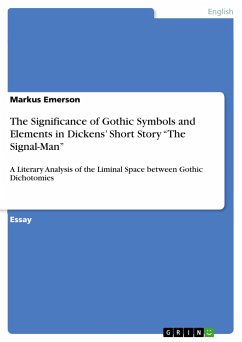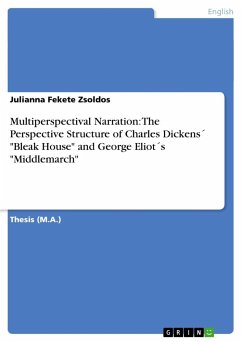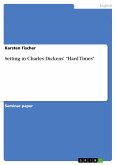Essay from the year 2011 in the subject English Language and Literature Studies - Literature, grade: 1, , course: English - 19th Century, language: English, abstract: Charles Dickens' short story "The Signal-Man", published in 1866, is deeply connected with the spirit of the nineteenth century Britain. The huge impact of new technologies and economic development, together with Darwin's new theories about evolution challenged not only religious people. While many British people were looking towards a future of technology, empowered by new inventions in the time of the industrial revolution, many others found themselves struggling with the new ways of life. It is not surprising that in this period, when the people, according to Wilson, experienced "the most radical transformation ever seen by the world", many could not cope with the changes (Wilson I). Parts of the population, which were struggling with this change, were looking back in time to oppose this new situation. This led to a revival of Gothic values and ideas as an opposing force towards new developments. Dichotomies between science and belief, between mind and body were distinctive for Britain in the Victorian era. Nevertheless, the majority of the people found themselves somewhere between the two extremes. This space of in-between, the author will refer to as a 'liminal space', where Gothic elements are present and doubts govern the people. The narrator of Dickens' Gothic short story finds himself drawn in this liminal space between the two prevailing extremes like many other people around that time. The following essay will look at this liminal space and discuss the significance of the Gothic elements in Dickens' "The Signal-Man". The focus of discussion will be on an excerpt of the story, where Dickens' narrator tries to convince the Signal-Man that what he believes to be a ghost is in fact only a deception of his senses. In the course of this excerpt the reader can see how the narrator gets more and more unsure about the incidents and is therefore motioning towards the liminal space between science and supernatural beliefs.
Hinweis: Dieser Artikel kann nur an eine deutsche Lieferadresse ausgeliefert werden.
Hinweis: Dieser Artikel kann nur an eine deutsche Lieferadresse ausgeliefert werden.








